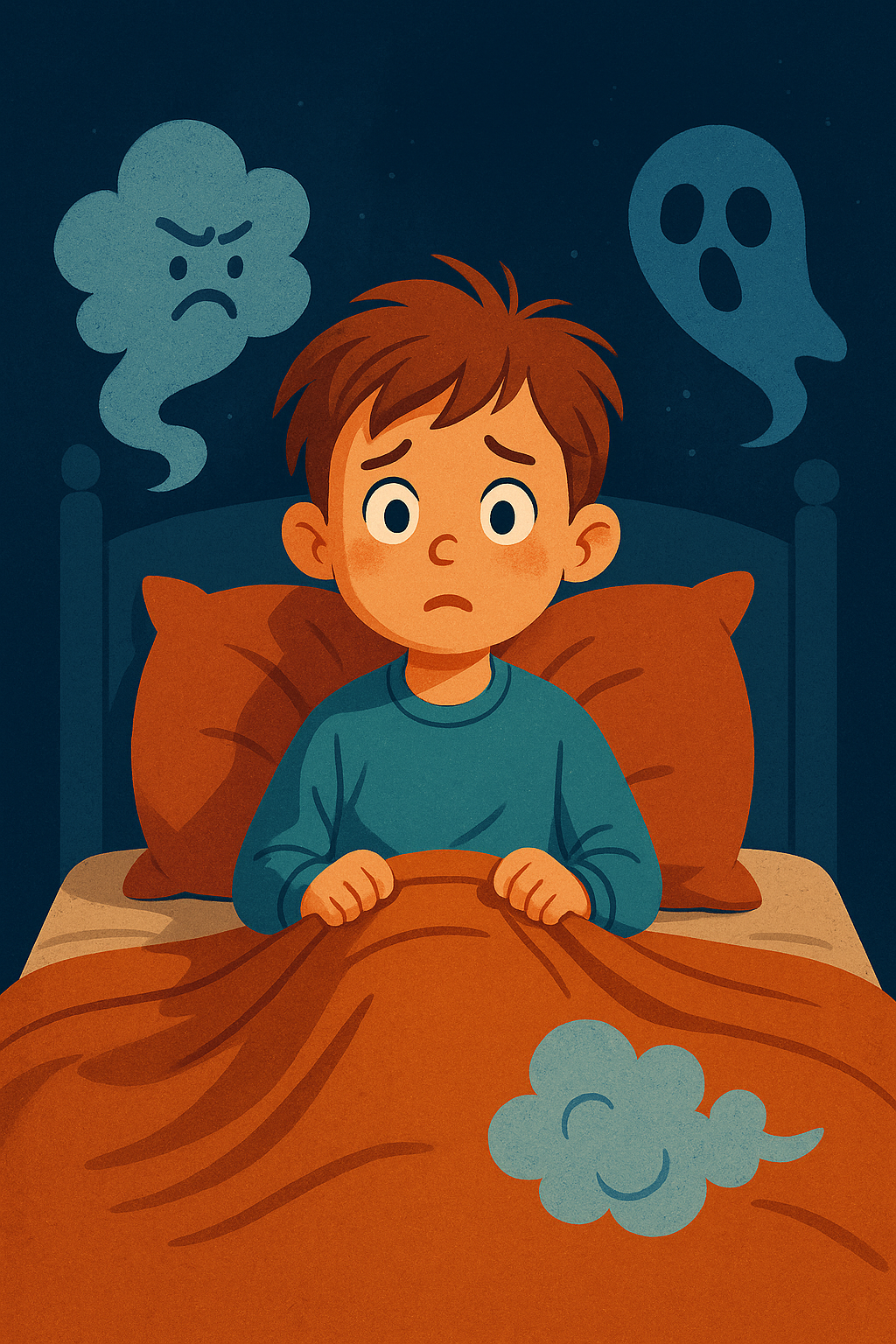🛌 The 9PM Gremlin Hour
There you are. It’s bedtime. The lights are low. The stuffed animals are fluffed. And your child suddenly develops infinite energy, existential dread, and a suspicious need to poop.
Why do kids go from peaceful cherub to feral woodland creature the second you say “bedtime”? Believe it or not, their gut might be in on the conspiracy.
It’s important to note that there are any number of reasons you little one may have trouble sleeping. Gut imbalance is just one, albeit an important one that can be simple to fix. And every little helps. This article discusses some common gut related causes of sleep issues in kids, but you should get professional advice before making significant changes to your kid’s diet.
1. Gut Trouble Can Trigger Sleep Trouble
Kids often struggle with sleep due to physical discomfort, overstimulation, or racing thoughts. One sneaky culprit? Their gut.
- Gas, bloating, or constipation can cause nighttime wakeups (or “Why is my toddler crying and farting at 3am?” moments).
- The gut-brain axis plays a major role in regulating mood and sleep cycles—even in tiny humans.
- When the gut is inflamed or imbalanced, sleep quality can tank.
2. The Midnight Fart Monster Is Real (and Full of Beans)
Let’s be real: kids are walking fermentation labs. And some foods—especially beans, onions, dairy, or processed snacks—can crank up the gas factory.
- Children often experience excessive nighttime gas, especially if their microbiome is out of whack.
- This can lead to restlessness, tummyaches, or epic fart symphonies that wake them (and you) up.
💡 If it is gut-related gas, balancing the microbiome may help reduce nighttime discomfort and help them sleep better (and quieter).
3. Overtired + Overfed = Wired
Ironically, overtired kids often struggle more with sleep. And when that tiredness meets a sugar crash or junk food overload? Chaos.
- Processed snacks and sugary foods before bed can cause blood sugar rollercoasters, leading to irritability and delayed melatonin release.
- Kids with gut imbalances might also process sugars differently—amplifying the bedtime bounce-off-the-walls effect.
👉 If the pattern looks like “sugar snack → chaos → crash → tears,” consider looking into gentle ways to support digestion and blood sugar stability.
4. Monsters Under the Bed (and in the Gut?)
Fear of the dark, wild dreams, and “there’s something in my closet” moments are normal. But they can also be amplified by what’s happening in the belly.
- A disrupted gut microbiome has been linked to anxiety, nightmares, and even increased emotional reactivity.
- Kids have super active imaginations—and a stressed gut may stir the pot.
💡 If it’s gut-related stress fueling nighttime fear, calming the belly may help calm the mind too.
5. The Gut-Sleep Loop: A Two-Way Street
Kids need quality sleep to support healthy digestion, and they need healthy digestion to get quality sleep. It’s a vicious (and very noisy) cycle.
- Poor sleep can throw off gut bacteria.
- An inflamed gut can disrupt melatonin production.
- And when both are off? Welcome to nightly meltdown hour.
🌀 If your child struggles to fall or stay asleep, it’s worth exploring whether digestive issues are feeding the problem.
6. What Might Help (If It’s Gut-Related)
Without making any recommendations, here are things many parents find helpful if gut health is to blame:
- Tracking symptoms: Keep a poop/sleep/mood log for a week. Patterns often jump out.
- Timing dinner right: Kids may sleep better when dinner isn’t followed immediately by bedtime.
- Gentle bedtime snacks: If hunger’s an issue, a light, gut-friendly snack (like a banana or oatmeal) can calm bellies without bloating.
- Gut-supportive routines: A consistent bedtime + low-stress evening + belly-friendly food = better odds.
And if it’s all just normal kid stuff? You’re still a hero for Googling it at 2am.
I can’t recommend a food diary strongly enough, especially when used with the poop/sleep/mood tracker mentioned above. Something that works great for one person might have the opposite effect on another, and this level of tracking can help you spot patterns.
✅ Wrap-Up
Parenting a sleepless child is a full-time job. Sometimes it’s stress. Sometimes it’s just being five. But sometimes… it’s gas.
The gut-sleep connection is real—even in tiny humans. And if your little one’s sleep struggles seem suspiciously digestive, there may be small, gut-friendly shifts that might make a big difference.
Now go get some rest. (Or coffee. Let’s be honest—probably coffee.)

Alex Keane is a health writer and gut health researcher with a personal mission: help people stop feeling like garbage for no clear reason. After years of dealing with brain fog, digestive issues, and 3am anxiety spirals, Alex started digging into the connection between the gut and the mind — and never looked back.
When not writing about microbiomes, Alex is usually found experimenting with fermented foods, walking obsessively, or trying not to buy more supplements off Instagram.
Alex is not a doctor, and that’s probably for the best.

